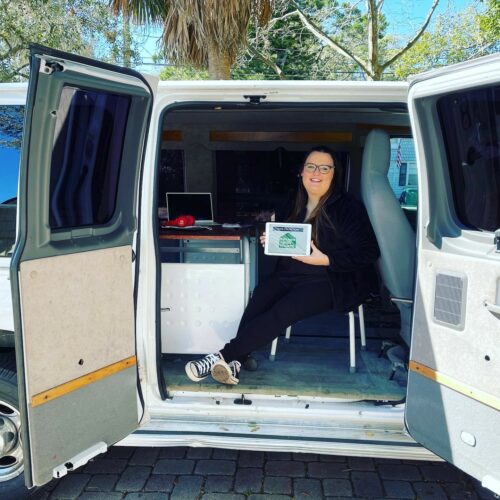COVID SHIFTED RESEARCH
Refugee Family Project
By Jessica Danielle Guler
I am a 5th-year doctoral candidate in the Clinical Child Psychology Program at the University of Kansas and the 2019 SPP Diversity Grant recipient for my dissertation research project, the Refugee Family Project. This project will seek to understand the overlap between the mental and physical health concerns of diverse resettled refugee parent-child dyads living in the United States, including Syrian, Somali, and Karen resettled refugees.
Like many research projects, the Refugee Family Project was met with many unforeseen obstacles in 2020 when our data collection was stopped due to the COVID-19 pandemic. Additionally, this project presents with a range of complexities that make it both unique and impossible to adapt to a fully remote, internet-based design. We expect that many refugee families we seek to work with may have limited access to transportation, the internet, and computers to engage in research participation. Further, given the diversity within our target sample, our measures are delivered in three languages (Arabic, Somali, and Karen). We must provide bilingual interpreters so that families can participate. While our original plan was to collect data from refugees from inside their homes, COVID-19prevents us from implementing these previously proposed procedures.
Over the last 12 months, I have worked with my local non-profit collaborator and our project’s community advisory board (CAB) to “re-design” the Refugee Family Project. My goal was to make the project feasible and safe for families to participate during the pandemic and diminish the burdens in which research participation can place on families. We were approved last month by our university’s IRB to be officially re-activated for in-person data collection with refugee families due to our “re-design” with our recently acquired mobile data collection van. We have outfitted this van with workstations and a WIFI internet hot spot to bring the Refugee Family Project to refugee families’ homes.
Our data collection van will allow us to provide WIFI and tablets to families to engage with us to collect data while the families sit inside their home and we sit outside in our vehicle. We hope these efforts will accomplish our goal of implementing a feasible and safe research project. We have much gratitude to the Society of Pediatric Psychology for providing funding for this project, as without this funding, the project would truly not be possible. We also greatly look forward to sharing our results at future SPPAC conferences. Until then, we are ready to hit the road and look forward to meeting with refugee families in the months

